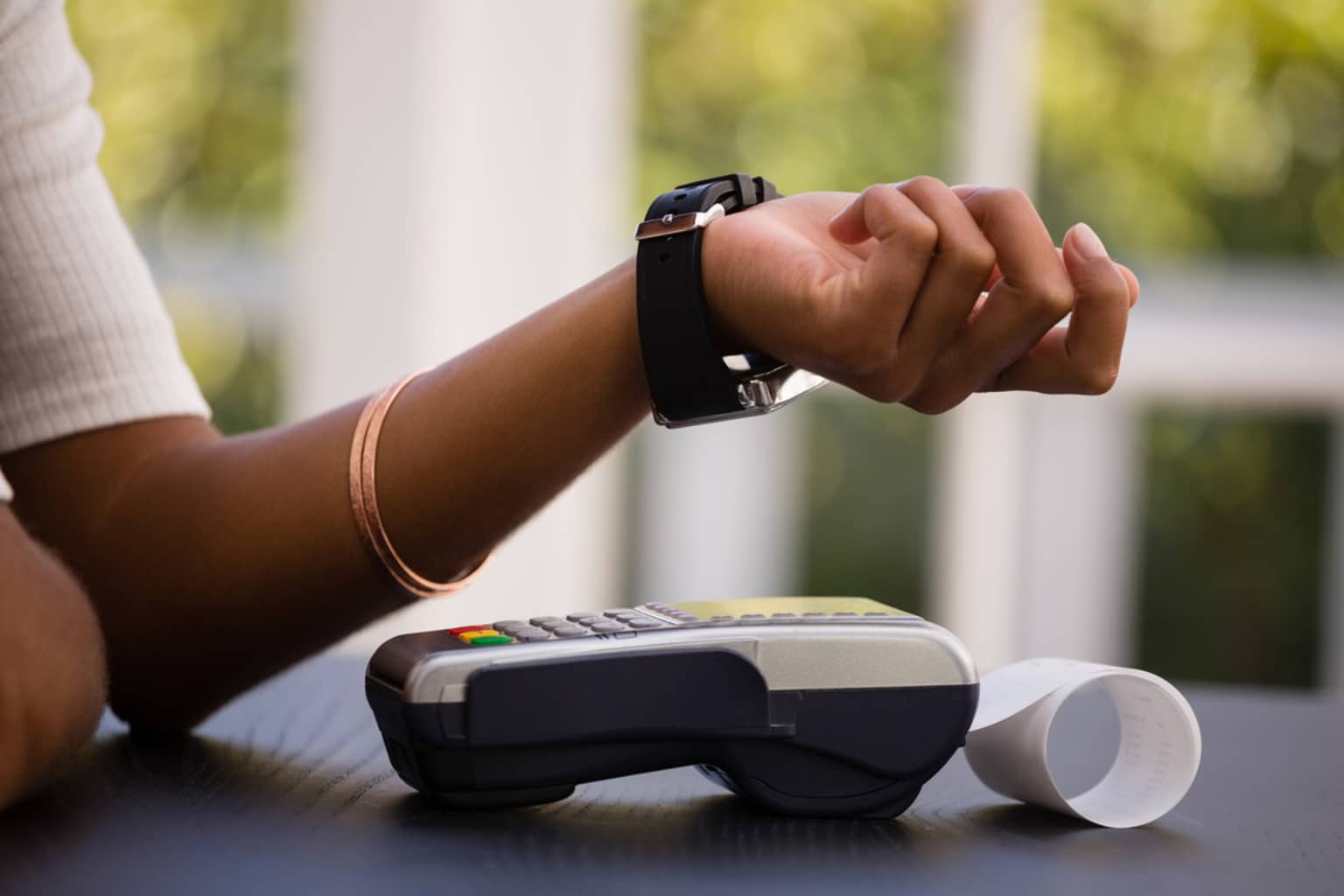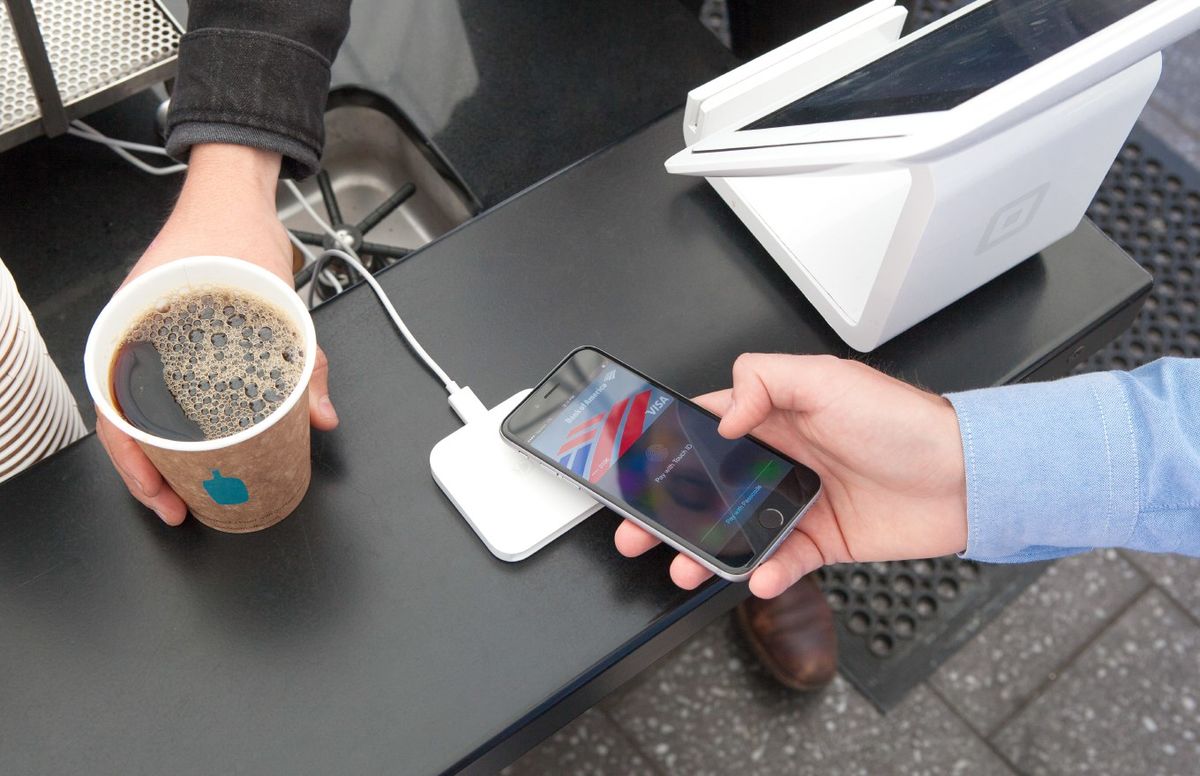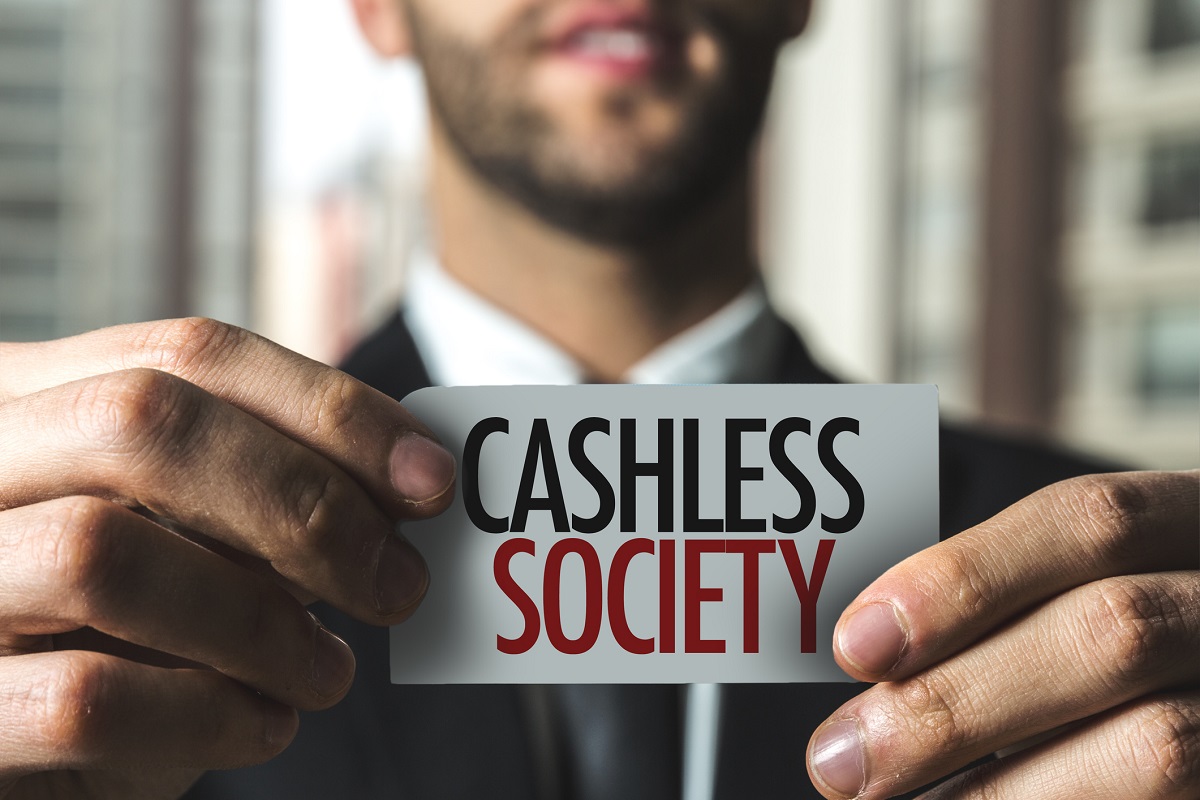Introduction
Welcome to the digital age, where technology has revolutionized the way we conduct financial transactions. The emergence of cashless societies, where digital payments and cryptocurrencies have become the norm, has raised questions about the role of traditional forms of wealth, such as gold. While the use of cash may be diminishing, the value of gold has remained steadfast throughout the centuries.
Gold has long been regarded as a symbol of wealth and prosperity, sought after for its intrinsic value and beauty. Its durability and scarcity have made it a trusted medium of exchange since ancient times. However, with the shift towards a cashless society, many wonder how gold fits into this new landscape.
In this article, we will explore the various ways in which you can utilize your gold in a cashless society. Whether you are an investor seeking to diversify your portfolio or an individual who owns physical gold, there are options available that allow you to make the most of this precious metal.
It is important to note that we are not advocating for or against the use of gold as a primary means of exchange in a cashless society. Rather, we aim to provide you with information and insights on how you can leverage your gold holdings in the modern financial landscape.
So, if you are curious about the role of gold in a cashless society and how you can make the most of your gold assets, read on to uncover the possibilities.
The Role of Gold in a Cashless Society
In a cashless society, where digital transactions reign supreme, gold continues to hold its value and can play several important roles. Here are a few ways in which gold remains relevant:
- Store of Value: Gold has been a trusted store of value for centuries. In a cashless society, where traditional currency may face increased uncertainty, gold can serve as a reliable asset that retains its worth. Its limited supply and universal recognition make it a valuable hedge against inflation and economic instability.
- Diversification: Investing in gold can provide diversification in a cashless society. While digital currencies and stocks may dominate the investment landscape, including gold in your portfolio allows you to benefit from its unique properties and potential for capital appreciation. By diversifying your holdings, you can mitigate risk and protect your wealth.
- Alternative Currency: While digital payments are convenient and efficient, some individuals may prefer the tangibility and independence of physical assets like gold. Gold can act as an alternative currency, offering a degree of financial autonomy outside the traditional banking system. It can be used for bartering or as a medium of exchange in certain situations where digital transactions may not be possible or desired.
- Financial Crisis Protection: Gold has historically acted as a safe-haven asset during times of financial crisis. In a cashless society, where economic uncertainties may still arise, holding gold can provide a buffer against market volatility and currency devaluation. Its intrinsic value and perceived stability make it a favored asset class in times of turmoil.
While gold may not be the primary medium of exchange in a cashless society, its enduring value and versatile nature make it an asset worth considering. Whether as a store of value, a diversification strategy, an alternative currency, or a hedge against financial crises, gold retains its significance in a digital world.
Now that we understand the role of gold in a cashless society, let’s explore the various ways in which you can utilize your gold holdings to enhance your financial position.
Investing in Gold
Gold has long been a popular investment choice, and in a cashless society, it can still play a significant role in diversifying and strengthening your investment portfolio. Here are some avenues to consider when it comes to investing in gold:
- Physical Gold: One of the most traditional ways to invest in gold is by purchasing physical gold in the form of bars, coins, or even jewelry. Owning physical gold provides a tangible asset that you can store securely. However, it’s important to consider storage and insurance costs, as well as the authenticity of the gold you are purchasing.
- Gold Exchange-Traded Funds (ETFs): For those looking for a convenient and liquid way to invest in gold, ETFs are an attractive option. These funds track the price of gold and allow you to buy and sell shares on stock exchanges. Investing in gold ETFs grants exposure to the price movements of gold without the need to physically own and store the metal.
- Gold Mining Stocks: Another way to gain exposure to the gold market is by investing in gold mining stocks. These are shares of companies involved in gold exploration, extraction, and production. Investing in gold mining stocks allows you to leverage the potential upside of the mining industry while diversifying your investment across multiple companies.
- Gold Futures and Options: For more advanced investors, gold futures and options contracts provide opportunities to speculate on the future price of gold. These derivative financial instruments can be traded on regulated exchanges and offer potential leverage, but they also involve higher risks and require a deeper understanding of the market.
When investing in gold, it’s important to conduct thorough research and consider your investment goals, risk tolerance, and time horizon. Additionally, seeking advice from financial professionals can help you make informed decisions and navigate the complexities of the gold market.
While investing in gold can be a lucrative strategy, it’s important to remember that like any investment, there are risks involved. The price of gold can be volatile, influenced by factors such as economic conditions, geopolitical events, and investor sentiment. Therefore, it’s important to approach gold investment with a long-term perspective and a well-diversified portfolio.
Now that we’ve explored the various ways to invest in gold, let’s delve into how you can use gold as a store of value in a cashless society.
Using Gold as a Store of Value
In a cashless society, where the stability of traditional currency may be uncertain, gold can serve as a reliable store of value. Here are a few ways in which you can utilize gold to preserve your wealth:
- Physical Gold Ownership: Owning physical gold in the form of bars, coins, or jewelry allows you to possess a tangible asset with inherent value. The physical nature of gold provides a sense of security, as it is not subject to the potential vulnerabilities of digital currencies or financial systems. Holding physical gold can act as a hedge against inflation and currency devaluation.
- Gold Certificates and Accounts: If you prefer not to store physical gold, you can opt for gold certificates or accounts offered by reputable financial institutions. These instruments represent ownership of a certain amount of gold, which is securely held by the institution on your behalf. Gold certificates and accounts allow for easy transfer of ownership without the need for physical delivery or storage.
- Gold-backed Digital Currencies: A relatively new concept in the cashless society is the emergence of gold-backed digital currencies. These cryptocurrencies are usually backed by physical gold reserves and offer the convenience and security of digital transactions while being tied to the value of gold. Gold-backed digital currencies combine the benefits of gold with the speed and efficiency of digital payments.
- Gold IRAs: For those planning for retirement, a Gold Individual Retirement Account (IRA) can be a wise choice. A Gold IRA allows you to invest in physical gold within a tax-advantaged retirement account. By holding gold in an IRA, you can enjoy potential tax benefits and further diversify your retirement portfolio.
Using gold as a store of value provides a level of stability and financial security in a cashless society. Its long-standing reputation as a valuable commodity and its scarcity make it an attractive asset for wealth preservation.
However, it’s important to note that while gold can protect against certain economic uncertainties, its value can still fluctuate. Therefore, it’s essential to consider your individual financial goals, risk tolerance, and time horizon when using gold as a store of value.
In the next section, we will explore the concept of gold-backed digital currencies and their potential role in a cashless society.
Gold-backed Digital Currency
In the era of cashless societies, the concept of gold-backed digital currencies has gained traction as a way to combine the benefits of gold with the convenience of digital transactions. These cryptocurrencies are designed to be backed by physical gold reserves, providing a digital representation of the precious metal. Here’s how gold-backed digital currencies work:
1. Backed by Physical Gold: Gold-backed digital currencies, also known as stablecoins, are typically linked to a specific amount of physical gold held in secure storage. This ensures that the digital currency has an underlying asset of tangible value, offering stability and trust to users.
2. Transparency and Auditing: To maintain credibility and verify the backing of the digital currency, reputable providers often undergo regular audits by independent third parties. These audits ensure that the amount of physical gold reserves matches the supply of the digital currency in circulation.
3. Value Stability: Gold-backed digital currencies aim to maintain a stable value by pegging their worth to the price of gold. This means that the value of the digital currency should closely follow the price fluctuations of physical gold, providing a reliable and more predictable means of preserving wealth in a cashless society.
4. Digital Transactions: Gold-backed digital currencies enable users to engage in digital transactions seamlessly. They can be used for online purchases, peer-to-peer transfers, or as a unit of account within a digital ecosystem. This allows for the convenience and speed of digital payments while being tied to the value and stability of physical gold.
Gold-backed digital currencies offer a unique blend of the traditional value of gold and the technological advancements of the digital world. They are particularly appealing to those who value the stability and tangible asset nature of gold but also want to take advantage of the ease and efficiency of digital transactions.
It’s important to note that not all gold-backed digital currencies are created equal, and thorough due diligence is essential before investing or using them. Factors to consider include the reputation and track record of the provider, the auditing and transparency mechanisms in place, and the regulatory compliance of the digital currency.
In the following sections, we will explore other practical ways to use your gold in a cashless society, including jewelry and accessories, gold loans, selling gold, and donating or gifting gold.
Jewelry and Accessories
Gold jewelry and accessories have long been cherished for their beauty and craftsmanship. In a cashless society, owning and wearing gold jewelry and accessories goes beyond mere adornment – it can also serve as a practical way to utilize your gold. Here are a few ways in which you can leverage gold jewelry and accessories:
1. Personal Use: Gold jewelry and accessories can be worn and enjoyed on a daily basis. They add a touch of elegance and sophistication to any outfit, making a statement about your personal style. Whether it’s a classic necklace, a pair of earrings, or a stylish bracelet, gold jewelry is timeless and can be passed down as heirlooms, creating a lasting legacy.
2. Gifts: Gold jewelry makes for cherished gifts on special occasions such as birthdays, anniversaries, or graduations. Giving gold jewelry as a gift not only shows your thoughtfulness and appreciation but also provides the recipient with a valuable asset that can be treasured for years to come.
3. Collateral for Loans: Gold jewelry can also be used as collateral for loans or as security for obtaining credit. Pawnshops and lending institutions often accept gold jewelry as collateral, allowing you to utilize the value of your gold to access funds when needed. This can be a helpful option during times of financial emergencies or when seeking short-term liquidity.
4. Resale Value: Gold jewelry and accessories hold a resale value due to the intrinsic worth of the gold itself. If you find yourself in need of funds or simply wish to upgrade your jewelry collection, you can sell your gold jewelry to reputable jewelers or through online marketplaces. By selling your gold jewelry, you can convert it into cash or invest in other assets.
When it comes to gold jewelry and accessories, it’s important to consider factors such as purity, craftsmanship, and market value. Purchasing from reputable jewelers ensures that you are getting genuine gold and quality craftsmanship. It’s also beneficial to stay updated with current gold prices to have a better understanding of the value of your gold jewelry.
With their aesthetic appeal and lasting value, gold jewelry and accessories are not only fashionable but also serve as a practical way to utilize your gold in a cashless society.
Next, we will explore the option of utilizing gold through loans and pawnshops.
Gold Loans and Pawnshops
Gold loans and pawnshops provide practical ways to leverage the value of your gold in a cashless society. Whether you need immediate access to funds or simply want to monetize your gold assets temporarily, these options can be beneficial. Let’s explore how gold loans and pawnshops work:
1. Gold Loans: With gold loans, you can use your gold as collateral to secure a loan. This type of loan allows you to borrow money against the value of your gold without selling it. The loan amount typically depends on the purity and weight of the gold. Gold loans are a quick and convenient way to access funds during emergencies or when in need of short-term liquidity. Repayment terms and interest rates may vary, so it’s essential to carefully consider the terms and conditions offered by the lender.
2. Pawnshops: Pawnshops provide a similar concept but with a slightly different approach. You can bring your gold items to a pawnshop, and the pawnbroker will assess the value of the gold and offer you a loan based on its worth. The pawnshop holds the gold as collateral until the loan is repaid, usually within a specified period. If you are unable to repay the loan, the pawnshop may keep the gold and sell it to recoup the loan amount. Pawnshops offer a quick and flexible way to obtain cash based on the value of your gold items.
Both gold loans and pawnshops provide you with options to utilize the value of your gold without permanently parting with it. It’s important to understand the terms and conditions of the loan or agreement, including interest rates, repayment terms, and any fees involved. It’s also advisable to choose a reputable lender or pawnshop to ensure fair and transparent dealings.
When considering gold loans or pawnshops, remember that these options may not fully reflect the market value of your gold, as there are costs and risks associated with providing the loan or holding onto the gold inventory. However, they can provide a practical solution for short-term financial needs without the need to sell your gold assets.
Up next, we will explore the option of selling your gold to unlock its value in a cashless society.
Selling Gold
Selling your gold is a straightforward way to unlock its value in a cashless society. Whether you have gold jewelry, coins, or bars that you no longer need or wish to liquidate your gold assets for other purposes, selling gold provides you with the opportunity to convert it into cash. Here are some key points to consider when selling gold:
1. Evaluate the Market: Before selling your gold, it’s important to evaluate the current market conditions and the price of gold. Gold prices can fluctuate, so it’s beneficial to be knowledgeable about the market trends. Research reputable sources or consult with a professional to get an accurate understanding of the value of your gold.
2. Choose a Reputable Buyer: When selling your gold, choose a trustworthy buyer or a reputable gold dealer. Look for well-established businesses with reliable customer reviews and certifications. Transparency in the buying process and fair pricing are essential factors to consider.
3. Gather Appropriate Documentation: Depending on where you live, there may be specific laws and regulations regarding the sale of gold. Ensure that you have the necessary documentation, such as a government-issued identification, proof of ownership, and any required permits or licenses, to facilitate a smooth and legal transaction.
4. Consider the Form of Gold: The form of gold you possess can impact its value when selling. Pure gold content, such as gold bars or coins, typically fetches higher prices compared to gold jewelry, which may have additional costs associated with craftsmanship and design. Keep this in mind when determining the value of your gold.
5. Get Multiple Quotes: It’s advisable to reach out to multiple potential buyers or gold dealers to obtain quotes for your gold. By comparing offers, you can ensure that you are getting a fair price for your gold. Be cautious of extremely low offers, as they may not accurately reflect the market value of your gold.
6. Sell Online or In Person: There are various ways to sell your gold, including online marketplaces, gold dealers, jewelry stores, or pawnshops. Determine the method that best suits your needs and preferences. Selling online may offer convenience, while selling in person allows for face-to-face interactions and the ability to negotiate in some cases.
Selling your gold allows you to convert the value of your gold into cash, which can be used for various purposes, such as handling financial obligations, investing in other assets, or funding personal expenses. Approach the selling process with careful consideration and ensure that you are comfortable with the terms offered by the buyer.
In the next section, we will explore alternative ways to utilize your gold in a cashless society, including donating or gifting gold.
Donating or Gifting Gold
Donating or gifting gold is a meaningful way to utilize your gold in a cashless society that goes beyond personal financial gains. Gold holds significant value, and by donating or gifting it, you can make a positive impact on others’ lives or create cherished memories for loved ones. Here are a few options for donating or gifting gold:
1. Charitable Organizations: Consider donating your gold to reputable charitable organizations. Many nonprofits accept gold donations and use the proceeds to fund various projects or provide assistance to those in need. Research organizations that align with causes you care about and ensure that they have appropriate mechanisms for accepting gold donations.
2. Education and Research Institutions: Universities, museums, and research institutions often appreciate gold donations. Your gold contribution can support educational programs, research initiatives, or the preservation of historical artifacts. Reach out to these institutions to inquire about their donation policies and how your gold can make a difference.
3. Family and Loved Ones: Gifting gold to family members or loved ones is a gesture of love and appreciation. It can mark special occasions such as weddings, graduations, or milestone birthdays. Gifting gold not only provides a valuable asset but also serves as an expression of sentiment and a lasting reminder of your relationship.
4. Community Initiatives: Consider contributing your gold to community initiatives or local projects that benefit the people around you. This can include supporting small businesses, funding local development projects, or sponsoring educational opportunities for underserved communities. Get involved with community organizations and explore ways to utilize your gold to uplift your local area.
When donating or gifting gold, ensure that you understand the potential tax implications and any legal requirements associated with the transfer of ownership. Consulting with tax professionals or legal advisors can provide guidance and ensure adherence to relevant regulations.
By donating or gifting your gold, you can create a positive impact and empower others with the value and potential that gold holds. It’s a way to contribute to meaningful causes, support education and research, strengthen family bonds, or promote community well-being.
Now that we’ve explored the various ways to utilize your gold in a cashless society, let’s recap the possibilities and their benefits.
Conclusion
In a cashless society, the role of gold may evolve, but its value and significance endure. Gold offers a range of opportunities to individuals seeking to leverage their gold holdings in the modern financial landscape.
Investing in gold provides diversification and potential capital appreciation, allowing you to benefit from its timeless value. Using gold as a store of value offers stability and protection against economic uncertainties. Gold-backed digital currencies combine the benefits of gold with the convenience of digital transactions.
Your gold can also be utilized practically through jewelry and accessories, which add elegance to your personal style and can serve as memorable gifts. Gold loans and pawnshops offer ways to access funds by leveraging the value of your gold without selling it outright. Selling gold allows you to convert it into cash, unlocking its value for various purposes.
Furthermore, donating or gifting gold provides an opportunity to make a positive impact on charitable causes, support education and research, strengthen family bonds, or contribute to local community initiatives.
When exploring these options, it’s crucial to conduct thorough research, seek advice when needed, and ensure that you engage with reputable and trustworthy parties. Understanding market conditions, evaluating offers, and considering legal and tax implications are all important aspects to keep in mind.
In a cashless society, the value and versatility of gold continue to shine. Whether you utilize it for investment purposes, as a store of value, or for practical reasons, gold remains a tangible and precious asset in the evolving financial landscape.
So, whether you choose to invest, wear, borrow against, sell, or donate your gold, the possibilities exist to make the most of this enduring and valuable resource.

























